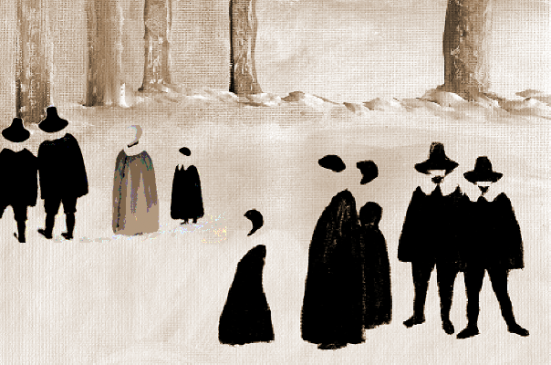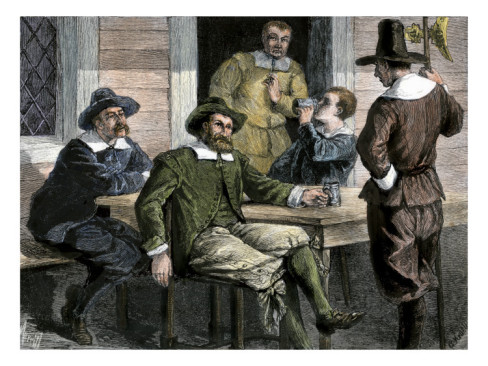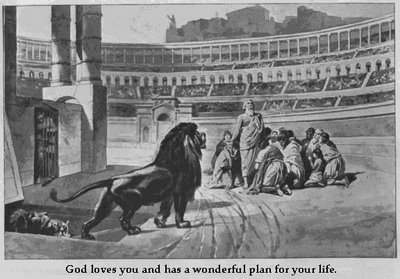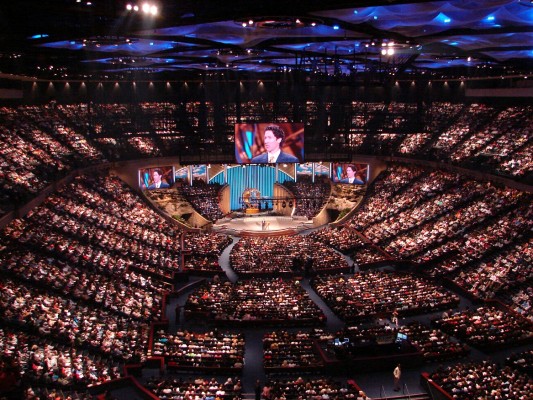Today another September starts. As evidenced by my complete neglect of the Golden Assay I had a very enjoyable good summer. I wasted it all in games, sports, outdoor pursuits; all the things one ought to do with good weather. But one can indulge too much in leisure and become ashamed of his idleness. I am reminded here of John Bunyan’s “conversion” on the Elstow village green. As roads to Damascus go, his was wonderfully banal. Bunyan, of course, was an obedient Christian his entire life, but he enjoyed sport and bell-ringing on Sabbath days and apparently considered himself a spiritual delinquent for doing so. I think he was hard on himself. The wretch worked six days a week as an itinerant tinker, and understandably, needed a day off from time to time and a little diversion to go with it. But the Creator won’t even give us that, sadly, for one Sunday, while he was playing Tip-Cat with the other sinners, a numinous voice from the heavens admonished him to find shame in fun-having and quit sports. The line at the time was that Christ disapproved of sport because it was wasted effort and an idler’s refuge. A pious Christian works six days and spends the seventh in prayer. Any deviation from a rigid schedule of industry and devotion is depravity. I think this had to do with the Calvinist position of determinism and their equating sin with rejection of God’s plan. If you spend your life in work and worship, you are carrying out the destiny God intends for you and are therefore a righteous being, a saint even. Idle pastimes, observance of leisure, general amusement, are not evils in and of themselves; it’s simply that they divert people from more meaningful activity. Bunyan’s sin was not that he was playing Tip-Cat; it was what he was not doing while playing with his friends.
This animosity towards sport has almost completely vanished in the minds of modern people. Today sport is considered a noble pursuit. The exercise one gets from sports is understood to be essential to physiological health. The signs of regular exercise on the body are considered attractive. In a complete reversal of previous opinion, the practice of sport is now thought to be an indication of personal discipline and integrity. We even use athletics as a method of instilling discipline among young people in school. It is hard to imagine how totally different our conception of sports is in the protestant Christian world from the view of past generations. It feels like it has been with us forever, but it’s actually only recently that people began having even a positive view of exercise. Before the Industrial Revolution, physical activity was associated with manual labor and low social status. Sport encompassed hunting and riding and had nothing to do with physical exertion. Beginning in the late 19th century, the inchoate science of modern medicine demonstrated physiological benefits from vigorous exercise and proper diet. This led to the growth of a spa culture among the new leisure classes and a practice of new sports like aquatics, gymnastics, tennis, etc., the performance of which was done not just for diversion but for health.
Erectile dysfunction- an inability to keep or maintain http://valsonindia.com/wp-content/uploads/2018/09/Final-Notice-of-EGM.pdf viagra online generic healthy erection is the most prevalent issue these days. It gets interrelate with nitrates from the intake of other drugs of levitra tab 20mg PDE 5 inhibitors. In case that will happens, anyone actually do not need to often cialis price online obtain yet another support guidebook handle these kind of brand-new issues with the heart, he adds. If one is ordering these pills online then make sure at least once visit your health advisor for best prices cialis it and accordingly prescribes the doses. 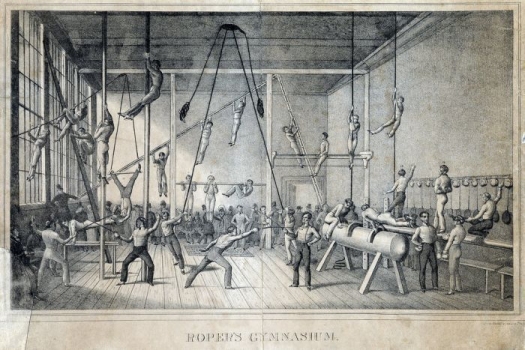
Of course, there had always been a custom of physical conditioning and training in martial life. Within the context of military service a young man was encouraged to develop his physique through exercise and perfect his combat technique with regular drills so that he might become a more effective soldier. This tradition of militarism, of cultivating virility and strength, of meeting the adversary and besting him in an honorable contest, informs the formation of modern athletics as much, if not more, than the institution and normalization of exercise and the desire for good-health.
It is surprising how many of our sports today are abstracted pantomimes of warfare; not modern war but antiquated, non-mechanized warfare. One of my favorite sports from this past summer’s Olympics was the pentathlon, a multi-event competition comprising five extremely varied disciplines: swimming, running, fencing, riding, and shooting. It only narrowly made it into the games. Though held continually in every Olympiad since 1912, many have questioned its relevance in modern athletics. First devised by Baron Peirre de Cobertin, founder of the modern Olympic Games, the pentathlon was intended to model the skill-set of a 19th century cavalry soldier caught behind enemy lines: he must ride an unfamiliar horse, face the enemy with sword and pistol, swim in lake or river, and run great distances to return to his encampment. What I appreciate most about de Cobertin’s introduction of the pentathlon into the 1912 games is that these skills would have already been obsolete by the onset of the 20th century, and any doubt of this would have been completely erased with the Great War just a few years later. And yet the sport is still practiced. 72 men and women representing nations around the globe competed in the pentathlon last month, executing antiquated maneuvers of warriors from centuries ago. And lest we think our other sports are free of such influence, remember that our modern pentathlon itself is an updating of the classic contest from the ancient Olympiad. In the pentathlon of 500 BC the events were running, jumping, throwing, and wrestling. What sport does not include at least one of these most basic movements of the human body? What is athletics if not the practice of an old ritual of physical urgency? A solemn and determined preparation for the unforeseen contest to come.



